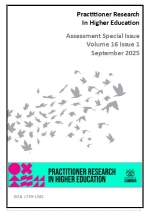The tangle in the feedback loop: Learner agency through a feedback loop activity across four university language programs
##plugins.themes.bootstrap3.article.main##
Abstract
This study investigated a semester-long feedback loop activity carried out by six colleagues in four different language programs at the same university. 38 students participated from six different classes with varied proficiency levels in Chinese, French, Japanese and Spanish. The goal of this activity was to provide tailored feedback with a view to enhancing the feedback process and improving learning.
While the success of the activity varied across the six classes, there was evidence of increased student engagement with feedback and improved understanding of their role in the feedback process. Unexpected differences emerged in the way the feedback loop activity was implemented in the respective classrooms. The reasons for these differences as well as for differences in levels of learner engagement were explored using Bronfenbrenner’s (1977, 1993) ecological framework, demonstrating its usefulness as a model for understanding feedback practices in university language programs.
##plugins.themes.bootstrap3.article.details##
Proposed Policy for Journals That Offer Delayed Open Access
Authors who publish with this journal agree to the following terms:
- Authors retain copyright and grant the journal right of first publication, with the work for one year after publication simultaneously licensed under a Creative Commons Attribution License that allows others to share the work with an acknowledgement of the work's authorship and initial publication in this journal.
- Authors are able to enter into separate, additional contractual arrangements for the non-exclusive distribution of the journal's published version of the work (e.g., post it to an institutional repository or publish it in a book), with an acknowledgement of its initial publication in this journal.
- Authors are permitted and encouraged to post their work online (e.g., in institutional repositories or on their website) prior to and during the submission process, as it can lead to productive exchanges, as well as earlier and greater citation of published work (See The Effect of Open Access).


 https://orcid.org/0000-0003-1970-6671
https://orcid.org/0000-0003-1970-6671